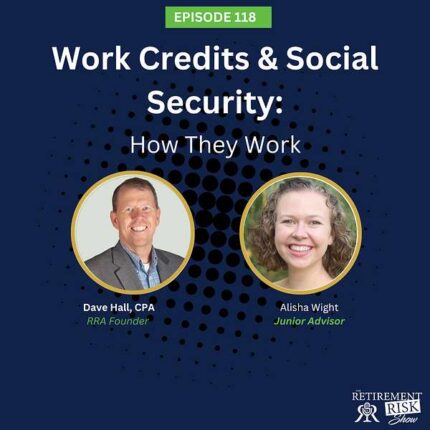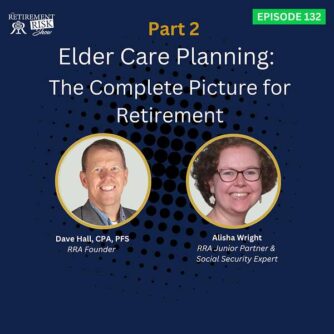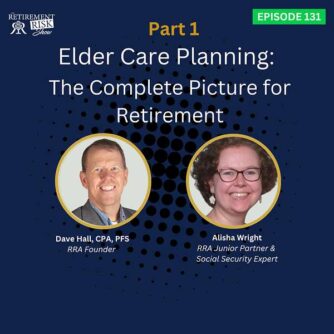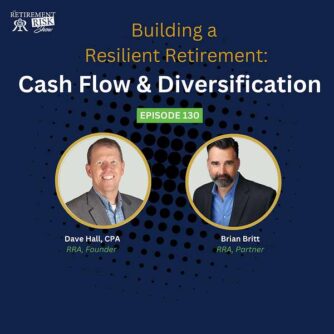In this episode, Dave brings to light the daunting reality of retirement — a period that could span decades, and highlights the essential resources available on retirementriskadvisors.com, designed to help you navigate retirement risks. As the episode unfolds, Dave and Alisha explore one of the top financial risks retirees face: Social Security. They discuss why the system seems shrouded in complexity, making it challenging for the average person to make well-informed decisions about their benefits.
Alisha, a junior advisor and expert in the field, shares insights on work credits — the essential currency for qualifying for Social Security. She clarifies common misconceptions about the number of credits needed and the flexibility with which you can earn them over your working years. The discussion also touches upon the sensitive topic of spousal and ex-spousal benefits, a feature rooted in traditional family values but subject to potential changes as the government faces future program refinancing.
Moreover, Dave uses his personal situation as a case study to illustrate the impact of continuing to work after claiming early benefits and how the earnings test may affect your Social Security payments. Yet, fear not — Alisha reassures that benefits reduced by the earnings test are not lost but merely deferred to a later time.
Key Themes:
1. Retirement risk strategies
2. Social Security misunderstanding
3. Importance of Social Security education
4. Work credits for Social Security
5. Non-consecutive credits accumulation
6. Credits and income thresholds
7. Survivor and disability considerations
Episode Takeaways:
1. Social Security is a complex topic with limited straightforward educational resources, leading to confusion about how to effectively navigate benefits. The podcast emphasizes the importance of seeking informed advice due to the lack of comprehensive guidance from government sources.
2. The episode highlights the work credit system of Social Security, detailing that 40 credits are needed to qualify for benefits, equivalent to ten years of non-consecutive work. It also explains the implications for individuals who may not work throughout the year but still earn enough to receive the maximum four credits per year.
3. There is a discussion on potential strategies to maximize Social Security benefits, including the implications of the earnings test for those who claim benefits before reaching their full retirement age and continue to earn an income. The ‘do-over’ policy, which permits the reversal of a claim decision within a year, is also explored as a means to rectify a suboptimal benefit claiming strategy.





